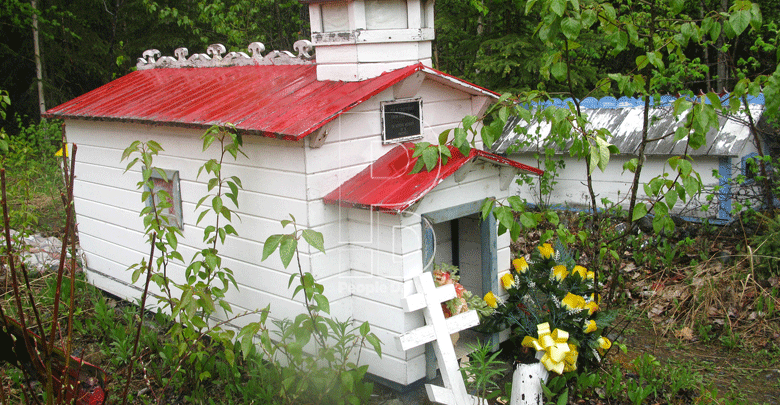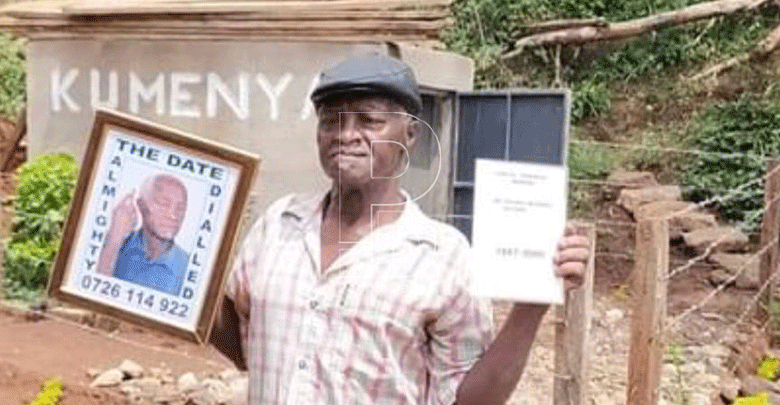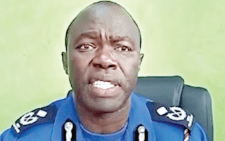Inviting death or just getting ready?

Milliam Murigi @millymur1
On January 14, 2021, Kenyans were shocked to learn of a man from Murang’a county who had prepared his eulogy and the place he will be interred once he die.
Samuel Karanja’s strange desire created a tonal nightmare to everyone who followed the story.
In African culture, it is a taboo for a person to dig his own grave while they are still alive.
Traditionally, it was okay if a person identified the grave site where he or she preferred to be buried, but it was uncultured for one to dig his or her own grave.
However, according to Karanja the act of preparing his own grave and eulogy in advance seemed a logical thing to do as this would save his family the trouble of long-winded funeral preparations.
For James Kieni, the thought of preparing for his death like Karanja is the last thing on his mind.
“This man must have made peace with his life and has accepted the eventuality that is death.

Either that or he is not in the right frame of mind. In this society where death is such taboo, I am not ready to be the one to shake things up,” he says.
Bad omen
Kikuyu elder, Johnstone Njenga says this action by Karanja is a mugiro (bad omen).
“In the past, the elderly would point at a general direction the place he wants to be buried.
Besides, it was generally known that the man of the house would show or mention where he would want to be buried, but never has it happened that they went ahead to demarcate or dig a grave,” he says.
He adds that Christianity and westernisation among other external factors has led to such actions.
Though to many this is totally against the culture, things are changing and preparing for one’s death should be seen as normal as Dr Jonathan Maweu, a psychologist and lecturer at Multimedia University of Kenya says.
“Death or the process of dying is an inevitable part of natural human life yet most cultures are uncomfortable discussing it as a topic and preparing for it.

In the 21st century, fear of death appears to be subsiding to a point of enabling people to plan for their death and final rites,” he says.
Controversial topic
According to him, digging one’s grave or preparing one’s eulogy is really no different than one preparing for the end by writing their will or preparing their own funeral service.
He adds that, initially, the African way of observing death as a rite of passage was not elaborate.
However, the religious doctrine of immortality of the soul/spirit as well as the “Blessed are those who die in the lord” have made it possible to distigimatise death as a curse or punishment.
“Some cultures and religions are now considering death as a transition from one form of existence to another.
As such, death is compared to other life transition events such as birth, graduation and wedding, an event through which one is promoted to a higher or superior form of existence.
This is why preparing for one’s death is no longer a taboo,” he adds.
According to lawyer Antony Odeck, the issue of disposing a dead body has been a controversial subject in Kenya for long; that is why some people have resorted to making wills with provisions for disposal of their bodies and others have resorted to digging their own graves in preparation for their death.
Over time the courts have also decided in various cases that a person can include in his/her will the precise method upon which their body can be disposed of, the place of burial and the manner of disposal.
Such provisions or directions have no binding legal effect when one is alive.
“There is no provision in the law as to who should have the responsibility of burying the deceased and even where the deceased should be buried.
If the deceased had a written and valid will it can be used to give directions as to the manner of disposal of the deceased’s body.
Though a will can state that, there is no legal backing on it,” says Antony.
He adds that where the deceased left no burial directions, or where such directions are not legally or practically enforceable, it is suggested that the law should give primacy to the right of the surviving spouse to make decisions relating to burial.
The law should select the surviving spouse and the deceased’s next of kin as the most favoured person to determine the time, place and manner of burial who qualify and rank them in the following order.
Provision of law
And what happens if there is a dispute on how to dispose a loved one body yet the deceased had made it clear how they want to happen?
Antony says there is currently no clear comprehensive legal provision in Kenya on the procedure for handling, disposition or settling of disputes relating to dead bodies or burial of persons.
The only provision that touches on this is section 137 of the Penal Code, which makes it an offense for any person to unlawfully hinder the burial of a dead body of a person or without lawful authority disinter (exhume), dissect or harm it or being under a duty to cause it to be buried, fail to perform that duty.
“Perhaps it is high time that Kenya legislated on the area of burial, which has become a growing field of modern day litigation just like in succession matters.
This could perhaps solve most of these disputes at the earliest of stages,” he adds.












